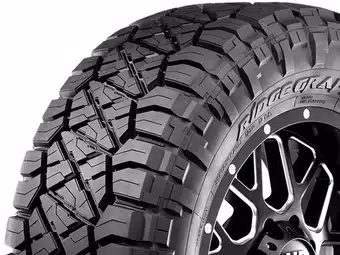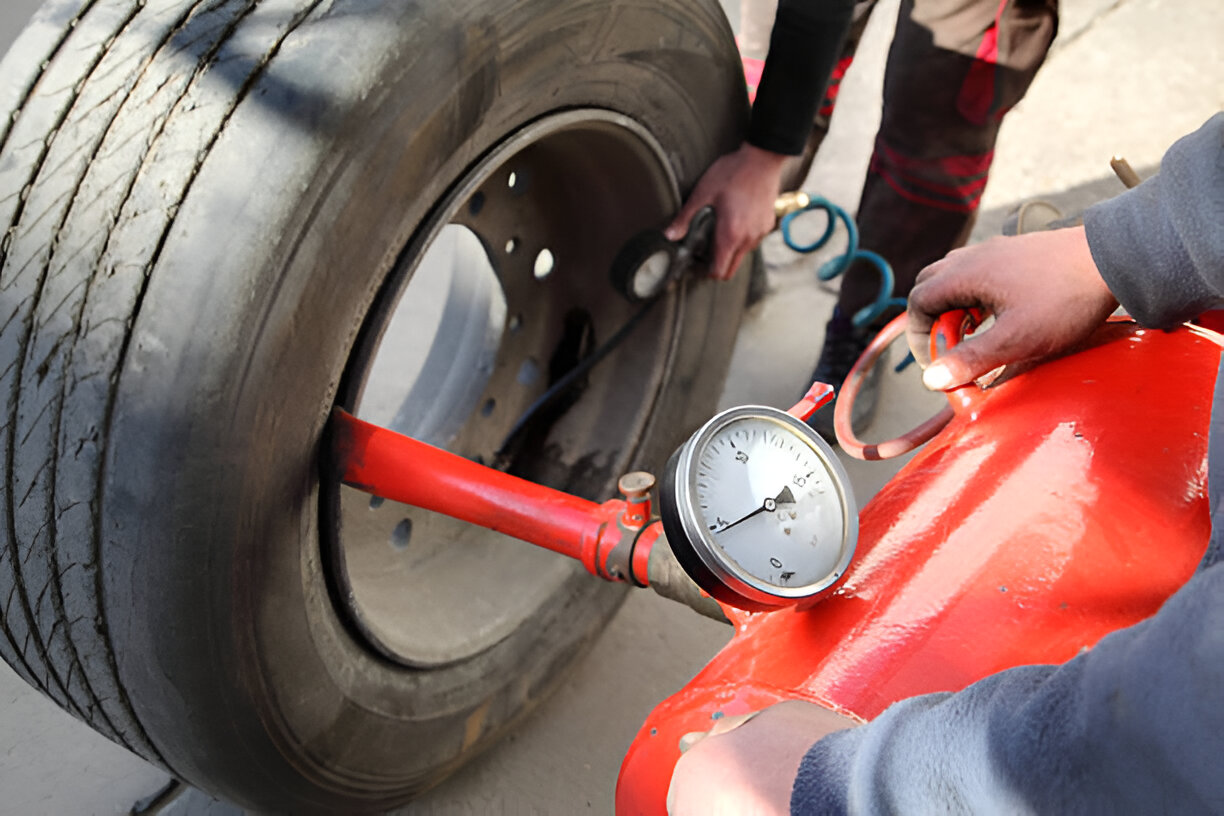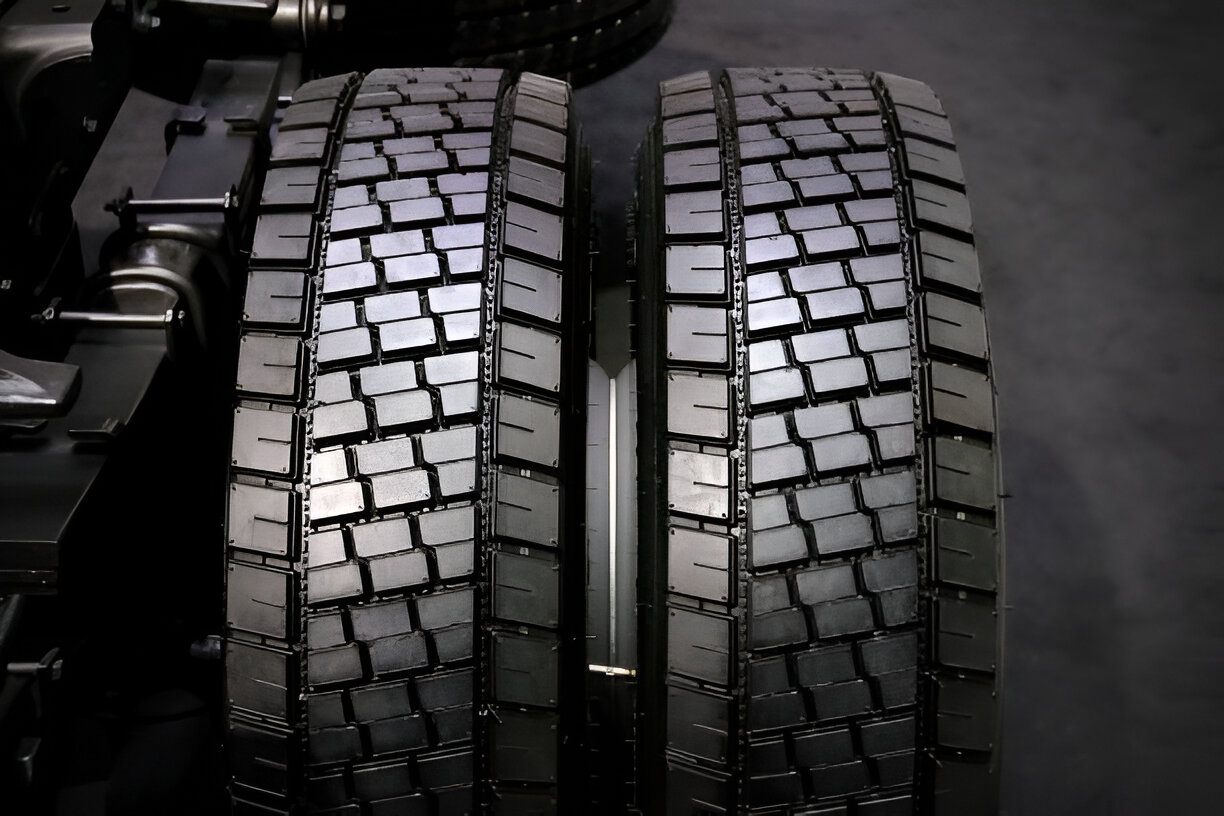Last Updated on July 27, 2025
Introduction To The Global Landscape of Best Tire Production
The tire sector is a vital component of the global automotive industry, serving as the point of contact between vehicles and the road surface. Tires are crucial to vehicle safety, performance, and fuel efficiency, making them an essential component of the automotive ecosystem. In this article, we will examine the worldwide landscape of tire production, beginning with an overview of the industry and progressing to an awareness of its global reach and the significance of various tire manufacturing regions.
Understanding the Global Tire Industry
The worldwide tire industry is a vast and complex network of manufacturers, suppliers, and distributors who create tires for various vehicles, including automobiles, trucks, motorbikes, and airplanes. It includes a variety of tire kinds, ranging from all-season and winter tires to high-performance and off-road models.

Critical aspects of the global tire industry include:
The global tire industry is marked by market size and expansion, manufacturer competitiveness, technological improvements, and an increasing emphasis on sustainability. These factors impact the industry’s dynamics by pushing innovation and influencing tire production sites worldwide.
- Market Size and Growth: The global tire market is growing steadily. Population growth, urbanization, and increased vehicle ownership contribute to tire demand.
- Competition: The sector is highly competitive, with many global and regional companies vying for market share. Bridgestone, Michelin, Goodyear, Continental, and Pirelli are among the leading tire manufacturers.
- Technological advancements: Tire manufacturing has evolved dramatically in recent years. Innovative technologies such as run-flat, self-sealing, and sensor-equipped tires are gaining popularity.
- Sustainability: Sustainability has gained hold in the tire industry, with manufacturers trying to develop environmentally friendly tire production methods, reduce carbon emissions, and increase tire recycling.
Significance of Tire Production Locations
The location of tire production facilities is essential to the industry. Where tires are manufactured is influenced by various circumstances, and these locations have a necessary effect on the global market. Some important aspects to consider are:
- Raw Materials and Supply Chain: The nearness of raw materials such as natural rubber, synthetic rubber, and other tire components is critical. Tire producers frequently locate their factories near sources of these materials to save transportation costs and assure a consistent supply chain.
- Labor Costs and Workforce Skills: Labor costs and the availability of skilled personnel considerably impact production sites. Some countries provide competitive labor prices, while others have a trained workforce with tire manufacturing experience.
- Regulatory Environment and Incentives: Government rules and incentives heavily influence the placement of tire manufacturing facilities. Some countries provide tax breaks, grants, and other benefits to entice tire makers.
- Market Access: Proximity to key markets and distribution channels is crucial for efficient supply chain management. Tire production locations are often strategically chosen to effectively serve domestic and international markets.
The United States: A Tire Manufacturing Giant
The United States is a formidable force in the tire manufacturing business, with a sizable domestic market, various tire production capacities, and a strong focus on technological innovation. With key production hubs nationwide and significant players like Goodyear, Bridgestone, and Cooper Tire, the U.S. is pivotal in supplying high-quality tires nationally and globally.
Overview of the US Tire Industry
The United States is a tire manufacturing powerhouse with a significant share of the worldwide tire industry. The US tire industry has several important characteristics, including strong domestic demand and a global presence:
- Market Size and Growth: The United States is one of the world’s largest tire markets. This is fueled by the country’s massive automobile fleet, which includes passenger cars, trucks, SUVs, and commercial vehicles.
- Diverse Product Range: American tire manufacturers create a wide range of tire types to meet the needs of diverse vehicle categories and consumers. This comprises all-season, performance, off-road, and specialty tires designed for specialized applications.
- Innovation and Technology: The US tire industry strongly emphasizes innovation. Manufacturers continually invest in research and development to create advanced tire technologies that improve safety, performance, and durability.
Key Tire Production Hubs in the US
The United States hosts several prominent tire production hubs strategically located to serve domestic and international markets efficiently. Some critical production hubs include
- Akron, Ohio: Known as the “Rubber Capital of the World,” Akron has a long history in tire manufacturing. It is home to tire companies, including Goodyear Tire and Rubber Company and Bridgestone Americas.
- Findlay, Ohio: Findlay is another central tire manufacturing location where companies like Cooper Tire & Rubber Company operate.
- Nashville, Tennessee, is a tire production hub and home to Bridgestone Americas’ headquarters. Bridgestone has several manufacturing plants around the United States.
- South Carolina: South Carolina has emerged as a significant player in the US tire sector, attracting investment from global manufacturers like Michelin, Continental, and Bridgestone. The state provides a favorable business climate with easy access to major transportation lines.
Major Players in American Tire Manufacturing
The American tire manufacturing landscape is home to several major players that have a significant impact on both the domestic and global markets:
- Goodyear Tire & Rubber Company: Founded in Akron, Ohio, in 1898, Goodyear is one of the world’s largest tire manufacturers. It produces various tires for consumer, commercial, and industrial applications.
- Bridgestone Americas: Bridgestone is a global tire and rubber company with a strong presence in the United States. It operates numerous manufacturing facilities and is known for its innovation in tire technology.
- Cooper Tire & Rubber Company: Based in Findlay, Ohio, Cooper Tire is a well-established American tire manufacturer that produces tires for passenger vehicles, trucks, and SUVs.
- Michelin North America: Michelin, a global tire leader, has significant operations in the United States, including manufacturing plants in South Carolina. The company is known for its commitment to sustainability and innovation.
China: The World’s Largest Tire Producer
China has maintained its position as the world’s tire production leader, accounting for a sizable portion of total tire output. This Asian behemoth has excellent scale and capability for the tire business, with multiple nationwide manufacturing sites. Cost efficiency, easy access to raw materials, and an extensive local and international market have driven China to the forefront of the tire manufacturing sector. It is a major supplier to the rapidly expanding domestic automotive industry. It sells many of its tires to countries worldwide, making China’s tire sector a key player in the global automotive ecosystem.
China’s Dominance in Tire Production
China has firmly established itself as the world’s largest tire producer, contributing mainly to the global market. Several key factors contribute to China’s dominance in tire production:
- Scale and Volume: China’s tire production capabilities are unbeatable, with numerous nationwide facilities. This size allows for producing a remarkable amount of tires each year, serving domestic and worldwide demand.
- Cost Efficiency: China’s low labor costs and efficient manufacturing processes have made it a desirable destination for tire production. This cost-effectiveness enables Chinese producers to provide competitive prices in the global market.
- Access to Raw Materials: China is a significant importer of natural rubber, a critical raw material in tire manufacturing. Its strategic access to these resources provides a consistent supply while lowering production costs.
Notable Chinese Tire Manufacturers
There are various tire producers in China, both domestic and international, with a considerable presence. Some of the notable Chinese tire producers are:
- Zhongce Rubber Group(ZC Rubber): ZC Rubber is one of China’s largest and most recognizable tire producers, offering a diverse range of tire types, such as passenger car tires, commercial truck tires, and off-road tires.
- Linglong Tires: Linglong Tires is an essential global producer in Shandong, China. It has production operations in numerous countries and is well-known for its devotion to R&D.
- Triangle Group: The Triangle Group is a well-established Chinese tire manufacturer focusing on producing high-quality radial tires for various applications, including passenger cars, trucks, and construction equipment.
- GITI Tire: GITI Tire is a global tire manufacturer with solid roots in China. It produces tires for passenger vehicles, SUVs, and commercial trucks in multiple international markets.
Factors Driving China’s Tire Industry Growth
China’s tire industry expansion is fueled by many main reasons that contribute to its standing as the world’s largest tire producer:
- Domestic Automotive Market: China’s flourishing domestic automotive market is a significant source of tire demand. The country’s constantly expanding vehicle fleet, including passenger automobiles and commercial vehicles, drives the tire demand.
- Export Opportunities: Chinese tire producers export much of their output to international markets. This export-focused strategy has enabled them to gain a sizable share of the global tire industry.
- Research and Development: Many Chinese tire producers spend on R&D to improve tire quality, safety, and performance. This emphasis on innovation improves their competitiveness in the global marketplace.
- Government Support: The Chinese government has supported the tire industry through incentives, infrastructure development, and favorable policies, facilitating industry growth and modernization.
Japan: Precision and Quality in Tire Manufacturing
Japan has gained a global reputation for its accuracy and ongoing dedication to quality in tire production. The Japanese tire industry is renowned for its outstanding craftsmanship and cutting-edge technology, and it sets the benchmark for excellence. Japanese tire manufacturers prioritize safety, innovation, and environmental sustainability, creating a diverse range of high-performance tires that cater to various vehicle categories and climates. With a legacy of excellence, Japan continues to be a driving force in delivering precision and quality in the tire manufacturing sector.
Japanese Tire Industry Overview
The Japanese tire manufacturing business is known for accuracy, quality, and innovation. Japan’s tire producers, known for their dedication to engineering quality, have carved out a position in the international market. This is an overview of the Japanese tire industry.
- Legacy of Excellence: Japan has a long tradition of making high-quality tires distinguished by precise craftsmanship and adherence to strict quality standards. This tradition of excellence has cemented Japan’s position as a global leader in tire manufacturing.
- Advanced Production Facility: Japanese tire makers invest heavily in cutting-edge technology and automated procedures to achieve the highest level of quality control and efficiency.
- Commitment to Safety: Japanese tire manufacturers value safety. Stringent safety tests and quality assurance measures are undertaken throughout production to ensure that tires fulfill the highest safety standards.
- Global Presence: Japanese tire manufacturers have a significant international presence, with production facilities and distribution networks spread across numerous continents. Their global reach allows them to cater to various market demands and climates.
Renowned Japanese Tire Brands
Japan has several world-renowned tire brands known for their quality and performance. Some important Japanese tire manufacturers are:
- Bridgestone Corporation: Bridgestone is one of the largest tire manufacturers globally. It is known for its cutting-edge tire technology and commitment to sustainability. The company offers various tire products for multiple vehicles and applications.
- Yokohama Rubber Company: Yokohama is celebrated for its high-performance tires, which are often used in sports and luxury vehicles. The company’s tires are known for their exceptional grip, handling, and durability.
- Toyo Tire Corporation: Toyo Tire is recognized for its tire design and engineering innovation. It produces diverse tires, including all-season, high-performance, and off-road variants.
- Sumitomo Rubber Industries: Sumitomo Rubber Industries, known for its Falken brand, produces a variety of tires designed for performance and safety. The company emphasizes research and development to meet evolving consumer needs.
Technological Advancements in Japanese Tire Manufacturing
Japan’s tire manufacturing business is at the forefront of technological developments, consistently pushing the boundaries of innovation.
- Silent tire Technology: Japanese tire producers have developed novel noise reduction methods to produce quieter tires, improving the driving experience.
- Eco-Friendly Materials: Sustainability is a top priority, and an emphasis is placed on developing eco-friendly materials and manufacturing techniques that minimize environmental impact.
- Advanced Tread Patterns: Japanese tire developers are constantly refining tread patterns to improve grip, handling, and fuel efficiency, adapting to the needs of different vehicle types.
- Run-Flat and Self-Sealing Tires: Japan has developed run-flat and self-sealing tire technologies, which enhance motorists’ safety and convenience.
South Korea: Innovation in Tire Production
South Korea has positioned itself as a center for innovation in the tire manufacturing business. South Korean tire producers are well-known for their cutting-edge technology and devotion to creating high-quality tires. They play an important role in defining the global tire market. Thanks to its strategic location, worldwide presence, and strong emphasis on research and development, South Korea continues to lead the way in producing innovative and sustainable automotive solutions.
South Korea’s Role in Global Tire Manufacturing
South Korea has emerged as a famous global tire manufacturing sector player. It is recognized for its creativity, technology-driven strategy, and dedication to making high-quality tires. Here’s a detailed look at South Korea’s involvement in global tire manufacturing.
- Strategic Location: South Korea’s geographical location makes it an essential hub for tire manufacturing, with easy access to local and international markets. Its proximity to significant car manufacturing facilities is helpful.
- Global Presence: South Korean tire producers have increased their international presence by developing manufacturing factories and distribution networks in various nations. This international presence enables them to address the needs of multiple markets and climates.
- Investment in R&D: South Korean tire producers devote a lot of money to R&D, focusing on tire technology and design to improve safety, performance, and sustainability.
Leading South Korean Tire Manufacturers
South Korea is home to several prominent tire manufacturers that have gained local and international recognition for their tire production capabilities:
- Hankook Tire: Hankook Tire is among the largest and most globally known South Korean tire manufacturers. Hankook is known for its advanced tire technology and produces many tires for passenger cars, trucks, and SUVs.
- Kumho Tire: Kumho Tire is known for its innovation and high-performance tires. The company’s products cater to various vehicles, including sports cars and luxury automobiles.
- Nexen Tire: Nexen Tire has gained attention for its commitment to sustainability and eco-friendly tire manufacturing practices. It offers a diverse portfolio of tires for various vehicle types.
Innovations and Sustainability Initiatives
South Korean tire producers lead the way in innovation and sustainability in the tire industry:
- Silica Compound Technology: South Korean tire producers developed silica compounds in tire treads to improve traction, fuel efficiency, and wet-weather performance.
- Run-flat tires: Advancements in tire technology have increased driver safety and convenience while eliminating the need for extra tires.
- Sustainable Materials: South Korean tire producers are increasingly using sustainable materials and ecologically friendly procedures, helping to make the industry greener.
- Innovative tire Technology: The addition of sensors and data analytics into tire design is an emerging trend, enabling real-time monitoring of tire conditions and improved vehicle performance.
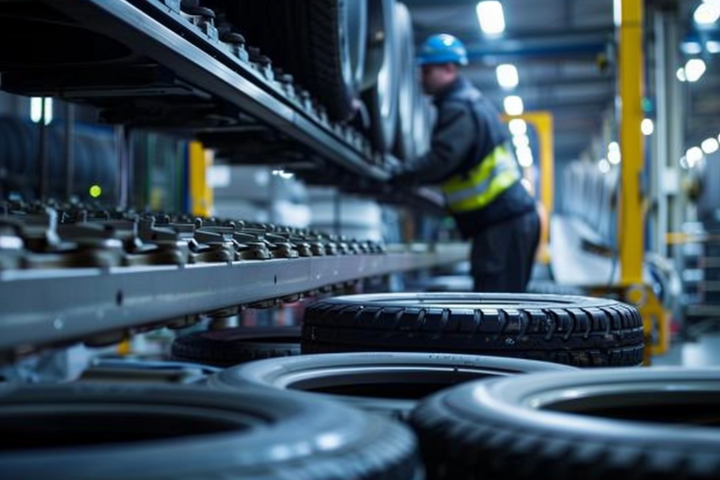
Germany: Engineering Excellence in Tires
Germany, known for its engineering accuracy and inventiveness, is the world leader in tire manufacture. The German tire industry represents excellence in design, technology, and performance. With a history of craftsmanship extending back to the early automobile period, Germany’s tire producers continue to set industry standards, focusing on quality, safety, and sustainability. Germany’s contributions to tire engineering remain critical to the worldwide automotive ecosystem since the country is a hub of tire innovation and home to known brands such as Continental, Michelin, and Pirelli.
The German Tire Industry Landscape
Germany is known for its engineering skills, and the tire sector is no exception. The German tire manufacturing landscape is a tribute to quality, known for precision and performance.
- Historical Significance: Germany has a long history of tire manufacture, stretching back to the beginnings of the automobile industry. This tradition has played a significant role in creating the country’s tire sector.
- Diverse Portfolio: German tire manufacturers create many tires, including high-performance, all-season, and specialized models. These tires suit various vehicles, including sports cars and premium cars.
- Global Presence: German tire firms have a large international footprint, with manufacturing sites and distribution networks spread around the globe. This helps them serve a diverse set of markets and locations.
Prominent German Tire Brands
Germany boasts several prominent tire brands known for their quality, performance, and engineering excellence:
- Continental: Continental is one of the world’s largest and most well-known tire manufacturers. It is synonymous with cutting-edge technology and safety innovations. The brand offers a detailed range of premium tires for various vehicles.
- Michelin: Although initially a French company, Michelin has a strong presence in Germany. It is renowned for its commitment to sustainability and eco-friendly tire manufacturing, producing high-quality tires for numerous applications.
- Pirelli: Pirelli, an Italian brand with a significant presence in Germany, is famous for its high-performance and luxury car tires. The company has a history of innovation and collaboration with prestigious automakers.
- Hankook: Although headquartered in South Korea, Hankook has a significant manufacturing presence in Germany. The brand is known for its advanced tire technology and high-performance offerings.
Emphasis on Quality and Performance
The German tire industry relentlessly emphasizes quality, performance, and innovation.
- Stringent Quality Standards: German tire manufacturers obey strict quality standards and testing procedures to ensure their tires’ durability, safety, and performance. This commitment to quality is a hallmark of the industry.
- Performance-Oriented Design: German engineers prioritize performance characteristics such as handling, traction, and braking capabilities. High-speed driving on the Autobahn prioritizes tire performance.
- Research and Development: Continuous research and development efforts are a hallmark of the German tire industry. These efforts result in tire innovations that benefit drivers worldwide.
- Sustainability Initiatives: German tire manufacturers actively pursue sustainability initiatives to reduce the environmental impact of tire production and promote eco-friendly practices.
Other Notable Players
While China, Japan, Germany, and South Korea dominate the global tire manufacturing sector, other countries are making significant gains in the business. Let’s look at the tire production activity in Brazil, India, and Thailand:
Brazil: Emerging in the Global Tire Market
Thanks to rising domestic demand and access to natural rubber resources, Brazil is progressing in the global tire market. Brazilian tire manufacturers are increasing their capacity and investing in technology to meet domestic and worldwide demand.
- Growing Domestic Sector: Brazil has a rapidly expanding automotive sector with high tire demand. The country’s enormous geography and diversified terrain necessitate a comprehensive selection of tire types, from ordinary passenger car tires to off-road and agricultural tires.
- Investment and Expansion: Brazilian tire producers such as Pneu Random and Tipler have been increasing production capacity and investing in technology. This has enabled them to serve both home and export markets.
- Natural Rubber Production: Brazil is one of the world’s foremost natural rubber producers, ensuring a consistent supply of raw materials for tire manufacture. This resource advantage improves the competitiveness of Brazilian tire production.
- Sustainability Efforts: Some Brazilian tire producers focus on sustainable methods and ecologically friendly tire production, following global trends in eco-conscious manufacturing.
India: Rising as a Tire Manufacturing Hub
India is emerging as a tire manufacturing hub, with robust industry growth fueled by a burgeoning domestic market and export opportunities. Major global players like Apollo Tires and MRF have established a significant presence in India, contributing to the country’s ascent as a prominent tire-manufacturing destination.
- Robust business Growth: India’s tire manufacturing business has expanded significantly, owing to a thriving home market and export potential. The country’s large population and rising automobile ownership have boosted tire demand.
- Diverse Product Range: Indian tire manufacturers create a wide range of tires, from low-cost models to high-performance and specialized tires. This diversity serves both domestic and foreign markets.
- Significant Global Players: India is home to substantial global tire producers such as Apollo Tires and MRF, which adds to the country’s industrial prominence. These companies adhere to high-quality standards and use cutting-edge technologies.
- Focus on Innovation: Indian tire companies are increasingly investing in research and development, aiming to enhance tire technology, safety, and performance. This commitment to innovation has propelled India onto the global stage.
Thailand: Southeast Asia’s Tire Production Center
Thailand’s geographical location in Southeast Asia places it as a hub for tire manufacture, with easy access to key regional markets. Leading tire manufacturers such as Michelin, Bridgestone, and Goodyear have opened plants in Thailand, bolstering the country’s position as a critical hub for tire production in Southeast Asia.
- Strategic Location: Thailand’s location makes it an essential hub for tire production in Southeast Asia. The country’s proximity to key Asian markets, such as India and China, makes it suitable for production and export.
- Investment and Expansion: Major tire manufacturers such as Michelin, Bridgestone, and Goodyear have built significant presences in Thailand, contributing to the country’s status as a tire manufacturing hub.
- Diverse Tire Offerings: Thai tire manufacturers produce many tires, including passenger car tires, motorcycle tires, and commercial vehicle tires. This diversity allows them to meet various regional and global demands.
- Government Support: The Thai government has implemented policies and incentives to attract tire manufacturers, further fostering the industry’s growth.
Factors Influencing Tire Production Locations
The placement of tire manufacturing facilities is an essential issue for manufacturers. Several significant aspects influence its operational efficiency, cost-effectiveness, and competitiveness. Understanding these elements is critical to appreciating the dynamics of tire manufacturing locations worldwide.
Labor Costs and Workforce Skills
Labor expenses are essential in establishing the feasibility of a tire production facility. Low labor costs in particular places can provide cost savings, but producers must also consider the availability of professional staff trained in tire production procedures and quality control.
- Labor Cost: Labor expenses are an essential factor for tire manufacturers. Low labor expenses in some places can provide a cost-effective advantage. However, labor cost savings must be balanced against staff productivity and skills.
- Skilled Workforce: Tire manufacturing requires a professional workforce knowledgeable in all production elements, including tire construction, quality control, and maintenance. Manufacturers choose regions with a readily available pool of skilled people.
- Training and Education: Access to training and educational institutions that offer specialized rubber and tire manufacturing programs can further improve the location’s appeal to tire manufacturers, ensuring a skilled talent pipeline.
Regulatory Environment and Incentives
The regulatory environment, which includes labor laws, environmental regulations, and safety standards, significantly impacts tire production facilities. Manufacturers frequently seek places with favorable regulatory regimes and government incentives, such as tax rebates, subsidies, or grants, to support their operations. Compliance with environmental norms and ethical procedures is also becoming more crucial in location considerations.
- Regulatory Compliance: The regulatory environment, which includes labor laws, environmental regulations, and safety standards, has a considerable impact on manufacturing locations. Manufacturers frequently select areas with favorable rules and regulations to reduce compliance risks.
- Tax Incentives and Subsidies: Many governments provide tax breaks, subsidies, or other financial incentives to attract tire producers. These incentives include tax cuts, subsidies, and research and development grants.
- Environmental Regulations: Sustainability and environmental considerations are increasingly crucial in tire production—manufacturers seeking eco-friendly production select locations that practice ecologically friendly techniques and adhere to emissions requirements.
- Trade Agreements: The availability of trade agreements and partnerships can facilitate international trade and export opportunities, impacting a manufacturer’s choice of production location.
Future Trends in Tire Manufacturing
Tire production is a constantly evolving business influenced by technical breakthroughs, shifting consumer preferences, and global market dynamics. As the industry looks forward, many significant themes are predicted to alter the landscape of tire manufacturing:
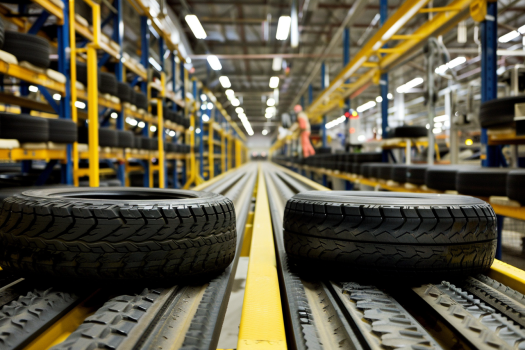
Automation and Industry 4.0.
Integrating automation, data analytics, and IoT technology into tire manufacturing operations is a huge step forward, increasing efficiency, quality control, and predictive maintenance. As sector 4.0 concepts continue to impact the industry, tire producers stand to benefit from more innovative, linked manufacturing.
- Smart Manufacturing: Using Industry 4.0 principles, tire manufacturing factories are transformed into intelligent, linked facilities. IoT devices, data analytics, and artificial intelligence (AI) are utilized to optimize manufacturing processes, minimize downtime, and increase product quality.
- Robotics and Automation: Tire producers are rapidly using robots and automation for various jobs, such as tire construction, quality control, and material management. These technologies improve precision, uniformity, and efficiency.
- Predictive Maintenance: Predictive maintenance using sensors and data analysis is becoming commonplace. It allows manufacturers to anticipate equipment failures and schedule maintenance, reducing unplanned downtime and production interruptions.
Sustainable and Eco-friendly Practices
Sustainability is a driving force in tire manufacturing. It focuses on reducing environmental impact through eco-friendly materials, circular economy initiatives, and the development of low-rolling resistance tires. These practices align with global efforts to create a greener automotive industry and meet eco-conscious consumer demands.
- Tire producers are looking at sustainable and eco-friendly materials to lessen the environmental impact of tire manufacturing. This involves using bio-based rubber compounds and recyclable resources.
- There is a rising emphasis on creating common rolling resistance tires to enhance fuel efficiency and minimize greenhouse gas emissions from cars. These tires help to make the automotive sector more environmentally friendly.
- Tire producers support circular economy efforts such as tire recycling and retreading programs. These efforts attempt to extend tire life and reduce waste.
Global Market Outlook
The tire industry’s future is closely linked to the global market perspective, with developing economies, electric and self-driving vehicles, and digital sales channels influencing the landscape. To remain competitive, tire producers must adapt to changing market dynamics and consumer demands.
- Emerging Markets: Tire demand is predicted to rise in emerging markets such as India, Brazil, and Southeast Asia as vehicle ownership increases and infrastructure develops. Tire makers will continue to expand their presence in these locations.
- Electric and Autonomous Vehicles: The transition to electric vehicles (EVs) and self-driving cars creates new opportunities and problems for tire makers. EVs require specialized tires for maximum range and economy, while self-driving cars require tires with advanced sensors and networking capabilities.
- Digitalization of Sales and Distribution: Tire sales and distribution are projected to undergo more digital revolutions. Online tire sales, tire marketplaces, and direct-to-consumer models are becoming increasingly popular, giving consumers easy access to diverse tire options.
Conclusion & Recommendation
In the ever-changing world of tire manufacturing, the choice of production location remains an important consideration for manufacturers looking to fulfill global market demands. This comprehensive guide has delved into the essential elements influencing tire manufacturing locations, such as raw materials, labor prices, workforce skills, regulatory frameworks, and incentives. It has also investigated the rise of significant participants in the global tire business, including Brazil, India, and Thailand.
Recap of Top Tire Production Locations
Top tire production locations, including China, Japan, Germany, South Korea, and the United States, continue to define the industry with their distinct capabilities. The global tire manufacturing scene is diverse and dynamic, as seen by China’s supremacy in tire production, Japan’s accuracy and quality, Germany’s engineering brilliance, and South Korea’s innovative spirit.
Emerging economies such as Brazil, India, and Thailand are taking significant steps to help drive global tire industry growth and offer manufacturers new chances for expansion and diversification.
Take the Next Step: Buy Tires with Ease.
For all your tire needs, consider Tires Easy, your trusted online source for high-quality tires. Our extensive range of tires, including all-season, winter, performance, and specialty options, caters to diverse vehicle types and preferences. With user-friendly navigation, detailed product information, and a seamless ordering process, buying tires has never been easier.
Explore Our Tire Selection
As the tire industry evolves, make Tires Easy your preferred destination for top-quality tires that ensure safety, performance, and reliability. With our commitment to customer satisfaction and a wide array of tire choices, you’re just a click away from finding tires for your vehicle.
Drive with confidence – choose Tires Easy.
FAQs
Where are the most tires made in the world?
The majority of tires are made in China, which has established itself as the world’s largest tire manufacturing hub. China accounts for a sizable portion of global tire output.
Who is the biggest producer of tires in the world?
China is the world’s largest tire producer, with several manufacturing plants serving domestic and foreign markets throughout the country.
Who is the largest tire manufacturer in the world? Guinness World Record?
International corporations such as Bridgestone, Michelin, and Goodyear frequently hold the world’s largest tire producer title. Exact rankings are subject to market movements and production quantities. There should be a Guinness World Record for the largest tire maker.
How many tire manufacturers are there in the world?
So many tire manufacturers worldwide, ranging from large multinational corporations to smaller regional and specialized companies, make pinpointing an exact count challenging.
What is the global tire industry trend?
The global tire industry is trending towards automation and Industry 4.0 adoption, sustainable and eco-friendly practices, and a focus on meeting the demands of emerging markets, electric vehicles, and digital sales channels.
What is the global tire industry valued at?
The global tire industry is valued at several hundred billion dollars annually, with market size subject to fluctuations based on factors such as demand, production, and economic conditions.
How many tires are produced in the world?
On average, over 3 billion tires are made globally each year to meet the needs of vehicles ranging from passenger cars to commercial trucks and industrial machinery.
What is the global automotive tire market size?
The global automotive tire market is substantial, valued at tens of billions of dollars. Its length varies annually due to vehicle production, replacement tire demand, and economic trends.
-
Automotive Specialist
-
Proofreader
-
Writer




